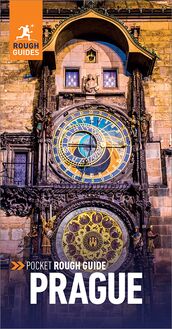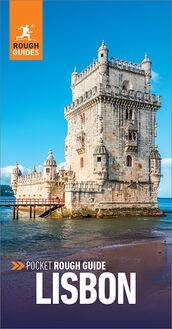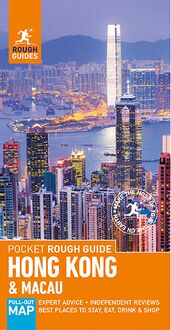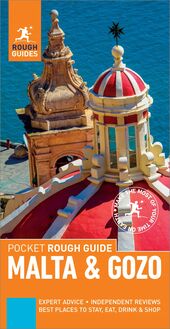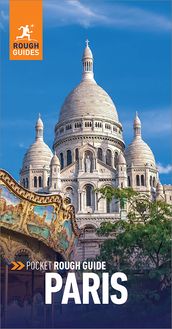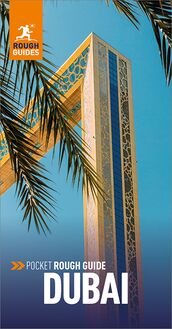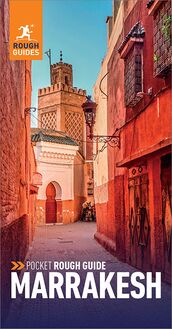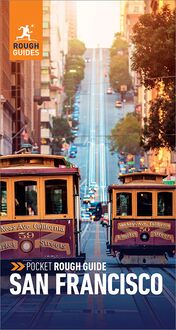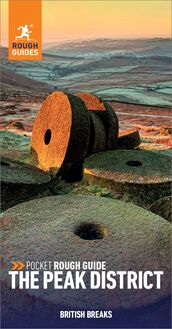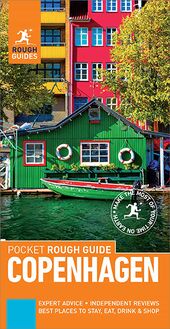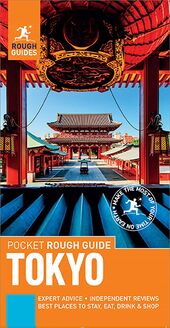-
 Univers
Univers
-
 Ebooks
Ebooks
-
 Livres audio
Livres audio
-
 Presse
Presse
-
 Podcasts
Podcasts
-
 BD
BD
-
 Documents
Documents
-
- Cours
- Révisions
- Ressources pédagogiques
- Sciences de l’éducation
- Manuels scolaires
- Langues
- Travaux de classe
- Annales de BEP
- Etudes supérieures
- Maternelle et primaire
- Fiches de lecture
- Orientation scolaire
- Méthodologie
- Corrigés de devoir
- Annales d’examens et concours
- Annales du bac
- Annales du brevet
- Rapports de stage
La lecture à portée de main
Vous pourrez modifier la taille du texte de cet ouvrage
Découvre YouScribe en t'inscrivant gratuitement
Je m'inscrisDécouvre YouScribe en t'inscrivant gratuitement
Je m'inscrisEn savoir plus
Vous pourrez modifier la taille du texte de cet ouvrage
En savoir plus

Description
Pocket Rough Guide Tokyo
Make the most of your time on Earth with the ultimate travel guides.
Entertaining, informative and stylish pocket guide.
Get Olympic ready with this pocket guidebook to Tokyo. It's a treasure trove of practical information, expert-curated listings and maps that will help travellers make the most of their 2020 Olympic adventure.
Discover the best of Tokyo with this compact and entertaining pocket travel guide. This slim, trim treasure trove of trustworthy travel information is ideal for short-trip travellers and covers all the key sights (Senso-Ji temple, Golden Gai, Shibuya crossing), restaurants, shops, cafés and bars, plus inspired ideas for day-trips, with honest and independent recommendations from our experts.
Features of this travel guide to Tokyo
- Compact format: packed with practical information, this is the perfect travel companion when you're out and about exploring Tokyo
- Honest and independent reviews: written with Rough Guides' trademark blend of humour, honesty and expertise, our writers will help you make the most of your trip
- Incisive area-by-area overviews: covering Ginza, Harajuku, Shinjuku and more, the practical 'Places' section provides all you need to know about must-see sights and the best places to eat, drink and shop
- Handy pull-out map: with every major sight and listing highlighted, the pull-out map makes on-the-ground navigation easy
- Time-saving itineraries: carefully planned routes will help inspire and inform your on-the-road experiences
- Travel tips and info: packed with essential pre-departure information including getting around, health, tourist information, festivals and events, plus an A-Z directory and handy language section and glossary
- Attractive user-friendly design: features fresh magazine-style layout, inspirational colour photography and colour-coded maps throughout
- Covers: Imperial Palace and around; Ginza and around; Akihabara and around; Ueno and around; Asakusa and around; Bayside Tokyo; Akasaka and Roppongi; Ebisu and the south; Harajuku and Shibuya; Shinjuku and the west; Ikebukuro and the north
Looking for a comprehensive travel guide to Japan? Try The Rough Guide to Japan for an informative and entertaining look at all the country has to offer.
About Rough Guides: Rough Guides have been inspiring travellers for over 35 years, with over 30 million copies sold. Synonymous with practical travel tips, quality writing and a trustworthy 'tell it like it is' ethos, the Rough Guides list includes more than 260 travel guides to 120+ destinations, gift-books and phrasebooks.
Sujets
Informations
| Publié par | Apa Publications |
| Date de parution | 01 juillet 2020 |
| Nombre de lectures | 0 |
| EAN13 | 9781789196689 |
| Langue | English |
| Poids de l'ouvrage | 14 Mo |
Informations légales : prix de location à la page 0,0374€. Cette information est donnée uniquement à titre indicatif conformément à la législation en vigueur.
Extrait
CONTENTS Introduction to TOKYO What’s new When to visit Where to Things not to miss Itineraries Places The Imperial Palace and around Ginza and around Akihabara and around Ueno and around Asakusa and around Bayside Tokyo Akasaka and Roppongi Ebisu and the south Harajuku and Shibuya Shinjuku and the west Ikebukuro and the north Accommodation Essentials Arrival Getting around Directory A–Z Festivals and events Chronology Language Glossary Small Print
TOKYO
With its sushi and sumo, geisha and gardens, neon and noodles, it may seem that Tokyo is in danger of collapsing under the weight of its own stereotypes. Yet ticking off a bunch of travel clichés is rarely this much fun, and as you might expect of the planet’s largest metropolis, there’s also enough nuance here to keep you entertained for a lifetime. Ordered yet bewildering, Japan’s pulsating capital will lead you a merry dance: this is Asia at its weirdest, straightest, prettiest, sleaziest and coolest, all at the same time.
Imperial Palace
Yasufimi Nishi/JNTO
Ginza shopping district
iStock
Caught up in an untidy web of overhead cables, plagued by seemingly incessant noise, the concrete and steel conurbation may seem the stereotypical urban nightmare. Yet step back from the frenetic main roads and chances are you’ll find yourself in tranquil backstreets, where dinky wooden houses are fronted by neatly clipped bonsai trees; wander beyond the high-tech emporia, and you’ll discover charming fragments of the old city such as temples and shrines wreathed in wisps of smoking incense.
One way to ease yourself into the city is by taking a relatively crowd-free turn around the Imperial Palace – the inviolate home of the emperor and a tangible link to the past. From here it’s a quick hop to glitzy Ginza , while the Edo-era spirit of the city lingers on in Tokyo’s evocative northeast quarter; here, Asakusa ’s primary focus is the major Buddhist temple of Sensōji , surrounded by a plethora of traditional craft shops, while the leafy precincts of Ueno Park contain several major museums. Also nearby is the weird, wired and wonderful Akihabara area, famous worldwide for its electronics stores, and recently rebooted as the focus of Tokyo’s dynamic manga and anime scene.
South of Ginza, and linked to the mainland by the impressive Rainbow Bridge, is Odaiba , a futuristic man-made island; heading west instead will bring you to nightlife-heavy Roppongi , now also something of an art haven. Fashionistas should head towards on-trend Shibuya and Harajuku , and the super-chic, boutique-lined boulevards of Aoyama . Also on the west side of the city lies Shinjuku , bursting with towering skyscrapers, endless amounts of neon, TV screens several storeys tall, and arguably the world’s most complicated railway station.
Tokyo is, quite literally, a “city of cities”, with each of its megaconurbations boasting a different character to the last, and all lassoed together by the above-ground Yamanote rail line – whichever Tokyo you desire is ready and waiting for your visit.
What’s new
Tokyo was awarded the Summer Games in 2013, and spent years preparing for its hosting of the event in 2020; the main addition was the New National Stadium, designed by Pritzker Prize-winning architect Kengo Kuma. Another major change came down Tokyo Bay way, where Tsukiji’s famous fish market was moved to modern new facilities in Toyosu. Lastly, an imperial succession in 2019 moved all of Japan into a new era, named “Reiwa”.
Old Imperial Bar
Getty Images
< Back to Introduction
When to visit
One of the best times to visit is in the spring, from April to early May, when flurries of falling cherry blossom give the city a soft pink hue and temperatures are pleasant. October and November are also good for the fireburst of autumn leaves in Tokyo’s parks and gardens. Avoid the steamy height of summer (late July to early Sept); from January through to March temperatures can dip to freezing, but the crisp blue winter skies are rarely disturbed by rain or snow showers. Carrying an umbrella is a good idea the rainy season in June and July, and in September, when typhoons occasionally strike the coast.
< Back to Introduction
Where to…
Eat
Culinary quality is high across the board in Tokyo, and the best places to eat are spread quite liberally around the city, but there are distinctive elements to each neighbourhood. Head to Shinjuku, Ebisu or Ginza to eat at a yokochō, which are market-style areas packed with dozens of minuscule eateries. Then there’s the new fish market in Toyosu – quite simply one of the world’s best places for sushi – or dinner cruises on one of the lanternstrung yakatabune boats in Tokyo Bay. Ginza is best for tea, while Shibuya has the best array of cafés; however, you can head almost anywhere for great noodles, since there are thousands of noodle bars across the city.
OUR FAVOURITES: Omoide Yokochō , Sushi-bun , Cha Ginza , Funasei , Udon Shin .
Drink
You won’t go thirsty in Tokyo, from the fancy bars around Ginza and the Imperial Palace to the more rustic Hoppy-purveyors of Asakusa. Roppongi is famed for its nightlife (as well as for Japanese eager to meet foreigners), while Nakameguro has a more hipsterfied scene. However, you’re bound to have at least one night out in Tokyo’s two biggies – youthful Shibuya, home to more bars than you can count; and slightly seedy Shinjuku, likewise busy from nighttime into the early morning (even on weekdays), and home to the city’s biggest LGBTQ scene.
OUR FAVOURITES: Old Imperial Bar , Baja , Commune , The Lockup .
Shop
Stacked with department stores and brand shops, Ginza is still regarded as Tokyo’s traditional shopping centre, but funkier Shibuya and Harajuku are probably the most enjoyable places to shop. Even if you don’t want to buy, the passing fashion parade doesn’t get much better. Asakusa is home to a plethora of small, traditional crafts shops, while Akihabara has long been known as “electric town” thanks to its myriad high-tech emporia, and is also now the go-to location for manga and anime goods. Chic Daikanyama has an appealing village atmosphere and is a good place to check out up-and-coming Japanese designers.
OUR FAVOURITES: Jūsan-ya , Dover Street Market , Toraya , The Cover Nippon .
Go out
The Tokyo clubbing scene took a turn for the better in 2016, when a Footloose -like law forbidding dancing was finally repealed; the law had banned dancing in licensed premises after midnight, though in practice it was largely ignored, so not all that much has changed, especially in the main clubbing regions, Roppongi and Shibuya . Local DJs to look out for are Satoshi Tomiie, a house legend since the early ‘90s; Ken Ishii, well known for his techno sets; EDM attitude-monger Mitomi Tokoto; and quirky dubstep star Ajapai.
OUR FAVOURITES: Muse , Bonobo , Harlem , Womb .
< Back to Introduction
15 Things not to miss
It’s not possible to see everything that Tokyo has to offer in one trip – and we don’t suggest you try. What follows is a selective taste of the city’s highlights, from bustling bars to the very best of traditional theatre.
Yasufimi Nishi/JNTO
Asakusa Home to old craft shops, traditional inns and the atmospheric Sensō-ji.
Martin Richardson/Rough Guides
Sumo Witness the titanic clashes of wrestling giants at the National Sumo Stadium in Ryōgoku.
Saori K/JNTO
National Art Center Set aside a chunk of time to explore this enormous gallery, a highlight of the so-called Roppongi Art Triangle.
iStock
Sushi There are innumerable places in which to scoff delectable raw fish – don’t leave without giving it a try.
iStock
Matsuri Your visit may well coincide with one of the capital’s umpteen matsuri (traditional festivals) – a slice of quintessential Japan.
Getty Images
Traditional performing arts Enjoy kabuki, nō and bunraku puppetry at the National Theatre, Kabukiza Theatre or Shinbashi Enbujō.
Shutterstock
Rikugi-en A quintessential Japanese-style garden designed to reflect scenes from ancient Japanese poetry.
iStock
Golden Gai It’s amazing how many bars are squeezed into this corner of neonsoaked Kabukichō – getting to and from your seat can resemble a game of Twister.
Shutterstock
Hanami parties Pack a picnic and sit under the cherry blossoms in Ueno Park, around the Imperial Palace moat or along the Meguro-gawa.
Alamy
Onsen bathing Soak in an old neighbourhood bathhouse such as the resort-like spa complex of Ōedo Onsen Monogatari in Tokyo Bay.
iStock
Meiji-jingū Enjoy one of the many annual festivals or regular wedding ceremonies held at Tokyo’s most venerable Shinto shrine.
JNTO
Harajuku Trawl the boutiques of Cat Street, dive into crowded Takeshitadōri or simply sit and watch the weekend human circus spool by outside Harajuku station.
Shutterstock
Ghibli Museum Most visitors will have seen at least one Studio Ghibli anime – get behind the scenes at this imaginative museum.
Shutterstock
Nezu Museum Housed in one of Tokyo’s most impressive pieces of modern architecture, this repository of Asian arts also has a magnificent garden.
iStock
Water buses Cruise down the Sumida-gawa or across Tokyo Bay on one of the city’s ferry services, including the manga-inspired Himiko sigh
-
 Univers
Univers
-
 Ebooks
Ebooks
-
 Livres audio
Livres audio
-
 Presse
Presse
-
 Podcasts
Podcasts
-
 BD
BD
-
 Documents
Documents
-
Jeunesse
-
Littérature
-
Ressources professionnelles
-
Santé et bien-être
-
Savoirs
-
Education
-
Loisirs et hobbies
-
Art, musique et cinéma
-
Actualité et débat de société
-
Jeunesse
-
Littérature
-
Ressources professionnelles
-
Santé et bien-être
-
Savoirs
-
Education
-
Loisirs et hobbies
-
Art, musique et cinéma
-
Actualité et débat de société
-
Actualités
-
Lifestyle
-
Presse jeunesse
-
Presse professionnelle
-
Pratique
-
Presse sportive
-
Presse internationale
-
Culture & Médias
-
Action et Aventures
-
Science-fiction et Fantasy
-
Société
-
Jeunesse
-
Littérature
-
Ressources professionnelles
-
Santé et bien-être
-
Savoirs
-
Education
-
Loisirs et hobbies
-
Art, musique et cinéma
-
Actualité et débat de société
- Cours
- Révisions
- Ressources pédagogiques
- Sciences de l’éducation
- Manuels scolaires
- Langues
- Travaux de classe
- Annales de BEP
- Etudes supérieures
- Maternelle et primaire
- Fiches de lecture
- Orientation scolaire
- Méthodologie
- Corrigés de devoir
- Annales d’examens et concours
- Annales du bac
- Annales du brevet
- Rapports de stage
